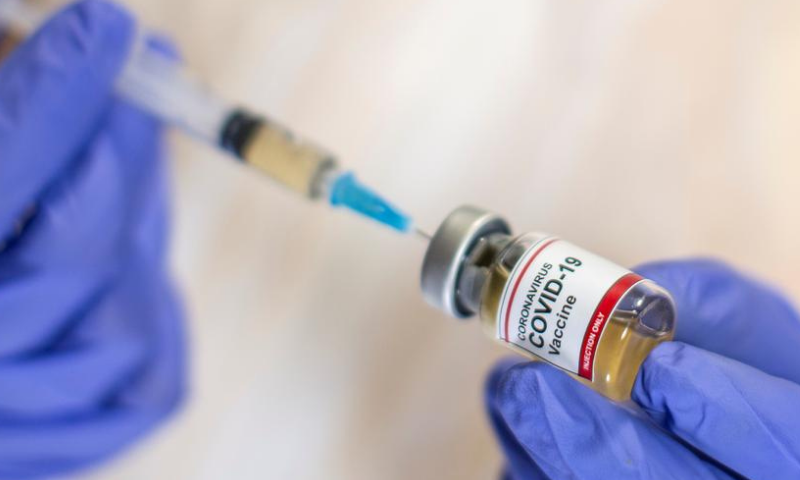JERUSALEM: Israel paid Russia $1.2 million to provide the Syrian government with coronavirus vaccines as part of a deal that secured the release of an Israeli woman held captive in Damascus, according to Israeli media reports on Sunday.
The terms of the clandestine trade-off orchestrated by Moscow between the two nations remained murky. But the fact Israel is providing vaccines to Syria, an enemy country hosting hostile Iranian forces, drew criticism at home, and stands in contrast to Israel’s refusal to provide significant quantities of vaccines to Palestinians in the West Bank and Gaza Strip.
Israeli Prime Minister Benjamin Netanyahu said not one Israeli vaccine was involved in the deal. He didn’t address whether Israel paid for Russian vaccines, and said Russia insisted details of the swap remain secret.
Netanyahu’s office declined comment, and many details of the agreement remained censored.
Labour Party leader Merav Michaeli called on the Knessets foreign affairs and defense committee to discuss the deal and Netanyahu’s political, inappropriate use of censorship.
Why do Israeli citizens consistently need to learn about things from foreign media that their prime minister is hiding from them? she said on Israels Kan radio.
Israel announced it had reached a Russian-mediated deal to bring home a young woman who had crossed into neighbouring Syria earlier this month. In exchange, Israel said it released two Syrian shepherds who had entered Israeli territory.
Netanyahu boasted that his warm ties with Russian President Vladimir Putin helped clinch the deal. His office made no mention of any agreement to pay for vaccines for Syria.
The Israeli reports said Israel paid for an undisclosed number of doses of the Sputnik V vaccine. The Russian Direct Investment Fund, which financed development of Sputnik V, said in November it will cost less than $10 per dose internationally.
The Syrian state news agency denied the deal exists.
The released 25-year-old Israeli woman returned to Israel via Moscow and was questioned by Israels internal security agency. She hails from the predominantly ultra-Orthodox town of Modiin Ilit and previously attempted to cross Israels borders with the Gaza Strip and Jordan, according to Israeli media.
The woman reportedly crossed into Syrian territory from the Golan Heights, which Israel captured in the 1967 Mideast war and annexed in 1981, a move not widely recognized internationally. Her identity and motivation for crossing into Syria were not released by Israeli officials.
Gideon Saar, a former Netanyahu ally who is running to unseat him in upcoming Israeli elections, said Sunday the governments censorship of something that Damascus and Moscow know about, and Israeli citizens dont, is incomprehensible.
Israel and Syria remain in an official state of war and Israeli citizens are officially prohibited from visiting Syria.
Israel’s archenemy Iran has sent troops to support Syrian President Bashar Assad against rebel groups. Israel considers Iranian entrenchment on its northern frontier to be a red line and has carried out hundreds of airstrikes on Iranian-linked facilities and suspected weapons convoys destined for the Iranian-backed Hezbollah militant group.
Netanyahu’s reported agreement to pay for vaccines to an enemy country contrasts with his refusal to provide large quantities of vaccines to Palestinians in the West Bank and Gaza, drawing outcry from human rights organisations.
The disparities between Israel’s successful vaccination push with its own population and the Palestinians have drawn criticism from UN officials and rights groups and have shined a light on the inequities between rich and poor countries getting access to vaccines.
Published in Dawn, February 22nd, 2021












































